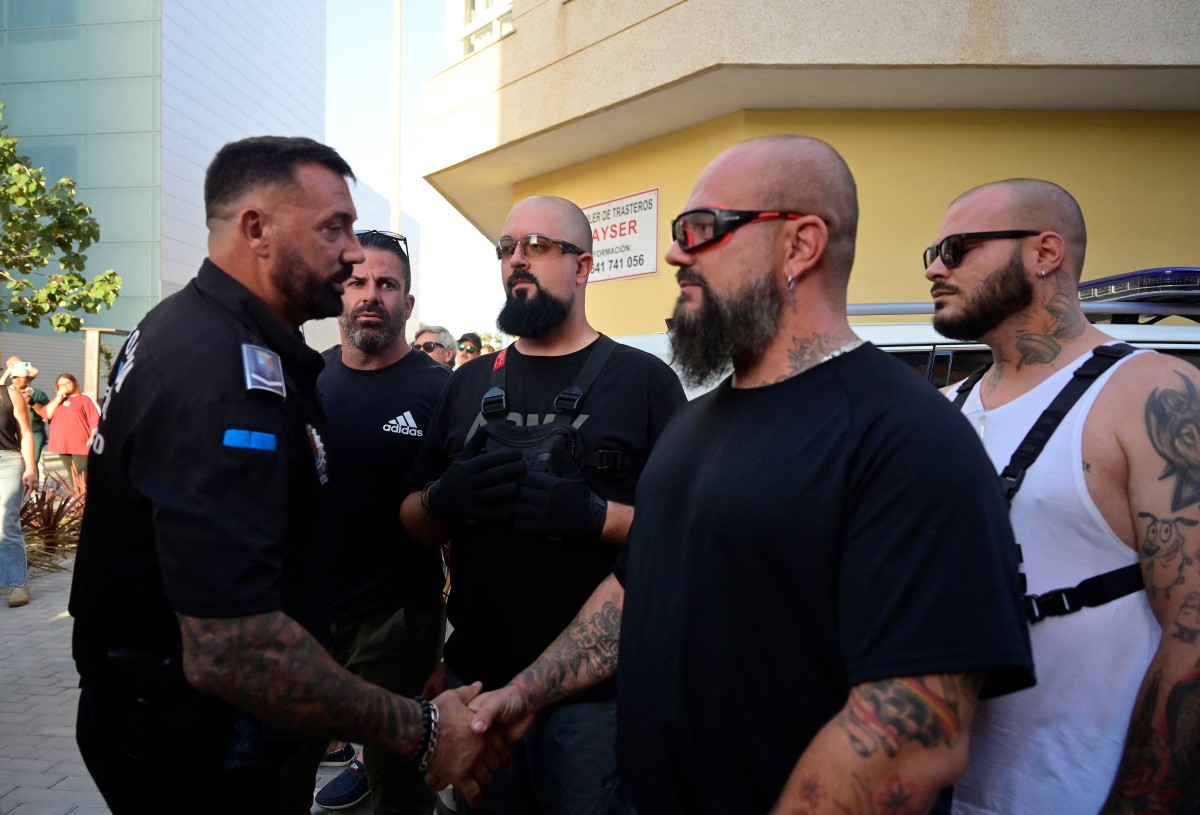What's caused the recent anti-migrant unrest in Spain?

Several days of unrest in the Spanish town of Torre Pacheco have highlighted rising tensions over immigration, an issue which the far right has pushed to the centre stage. Fourteen people have so far been arrested, according to officials.
What happened?
Torre Pacheco, a town of 40,000 in the southeastern region of Murcia, has seen at least three nights of unrest between far-right groups and immigrant residents, mainly of Moroccan origin.
The violence was sparked by the assault of a 68-year-old man on July 9th. He told Spanish media three men of North African descent attacked him without provocation.
In response, the town hall -- led by the conservative Popular Party (PP) -- organised a protest against insecurity on Friday. The demonstration escalated when far-right groups joined in, chanting anti-immigrant slogans.
Clashes have broken out on several nights since, though a strong police presence helped prevent serious confrontations.
The authorities said 14 people have been detained, including three men suspected of involvement in the assault on the 68-year-old who do not live in Torre Pacheco.
Among those arrested was a leader of the far-right group "Deport Them Now" which had called online for a "hunt" of immigrants in the town.
What was the political response?
The mayor of Torre Pacheco appealed for calm and warned against blaming the town's immigrant community for the incident.
Around 30 percent of Torre Pacheco's population is foreign-born, with many working in the region's key agriculture sector.
But the far-right Vox party, the third-largest force in Spain's parliament, has stepped up its anti-immigration rhetoric.
Vox's regional leader, Jose Ángel Antelo, blamed the unrest on "illegal immigration", claiming that migrants had assaulted the elderly and committed sexual violence against women.
Vox's national leader, Santiago Abascal, called for "immediate deportations" in response to what he called a "criminal migrant invasion".
READ ALSO: Vox proposes deporting more foreigners than are actually living in Spain
Prime Minister Pedro Sánchez's Socialist party strongly condemned the remarks, accusing Vox of "pouring fuel on the fire".
Prosecutors have opened an investigation into Antelo's statement to see if they constitute a hate crime.
"This is a clear example of growing tension over immigration issues in Spain," Paloma Román, a political scientist at Madrid's Complutense University, told AFP.

Why are tensions rising?
Traditionally a country of emigrants, Spain has seen a recent influx of foreign arrivals as living standards improved.
In 1998, there were 637,000 foreigners in the country -- about 1.6 percent of the population. There are 6.95 million today, or 14 percent of the total, including some 920,000 Moroccans, the largest foreign community.
Spain's leftist government, which aims to regularise up to 300,000 undocumented migrants per year through to 2027, argues immigration helps offset population decline and fill gaps in the labour market.
READ ALSO: Why Spain needs millions more migrants, not less
Sánchez is the only leader of a major European nation to champion migration and its economic benefits even as several countries move to tighten their borders against newcomers.
According to Spain's national statistics institute, immigration has been a key driver of Spain's buoyant economy, which grew 3.2 percent last year.
A recent Ipsos poll found that only 34 percent of Spaniards feel the country would be "stronger" with fewer migrants -- the lowest figure in the European Union.
Still, social tensions are mounting. Román linked the trend to the rise of the far right, which has placed immigration at the centre of its agenda.
Vox has seized on public unease, recently proposing a sweeping "remigration" plan to deport foreign nationals.
"In a country whose growth depends on immigration, this is somewhat contradictory," said Román, who attributed the polarisation to a political tug-of-war between the mainstream conservative PP and Vox.
This is compounded by corruption scandals that have weakened Sánchez's government, she added.
Please, login for more
thelocal





